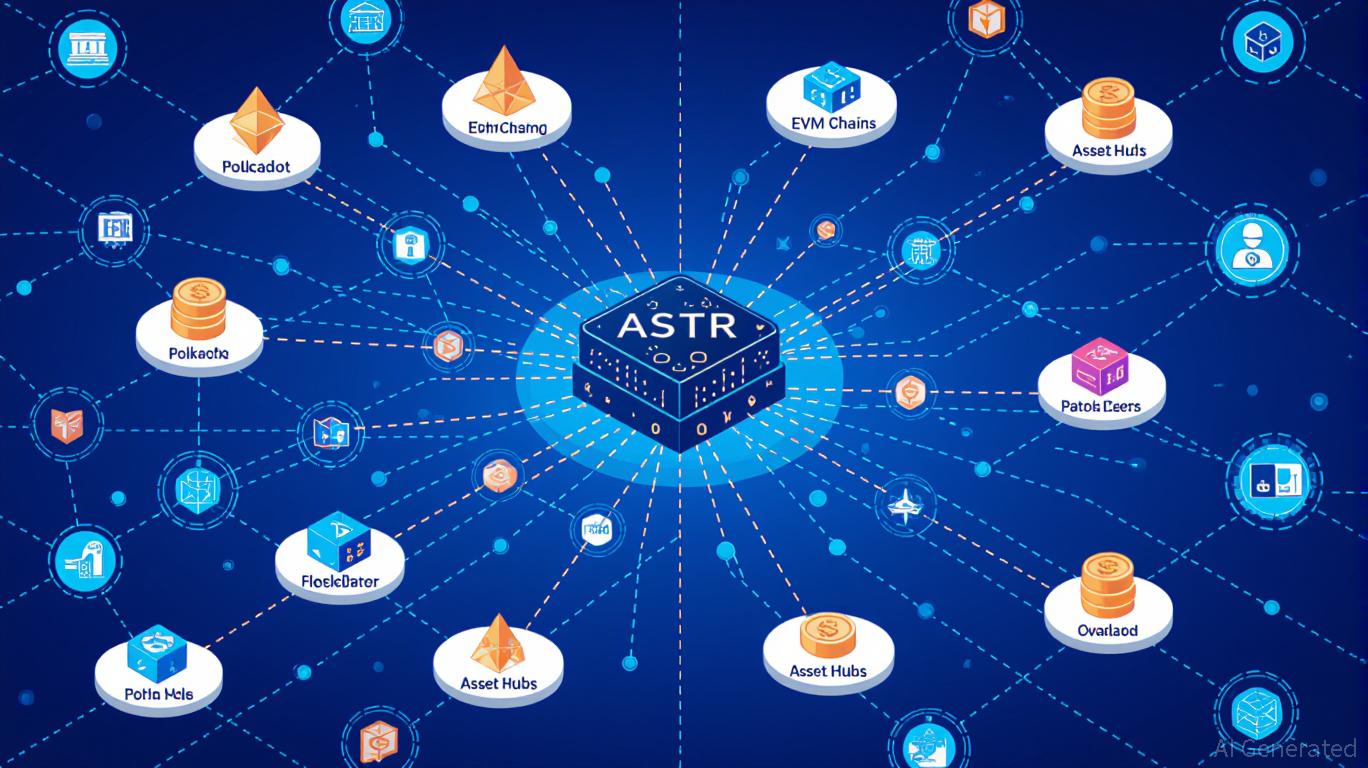Blockchain Connects Conventional and Digital Finance with Calastone’s Integration of Polygon
- Calastone partners with Polygon to tokenize fund distribution for 4,500 institutions across 58 markets, advancing blockchain adoption in institutional finance. - Polygon's proof-of-stake infrastructure enables sub-cent fees and instant settlements, bridging traditional markets with onchain efficiency while maintaining compliance. - Franklin Templeton expands its Benji platform to Canton Network, a private blockchain for institutional tokenized assets, highlighting hybrid solutions balancing privacy and t
Calastone, recognized as the largest global network for fund distribution, has joined forces with Polygon to introduce tokenized fund distribution to 4,500 institutions spanning 58 countries. This collaboration marks a pivotal move toward integrating blockchain technology into institutional finance. By utilizing Polygon’s proof-of-stake blockchain, the partnership delivers extremely low transaction costs and rapid settlement times, simplifying the process of global fund transactions, according to a
This partnership enables asset managers to issue Tokenized Fund Share Classes—blockchain-based versions of traditional mutual funds or ETFs—directly on Polygon. Simon Keefe, Calastone’s Head of Digital Solutions, stated that "blockchain is now capable of operating at scale," facilitating seamless integration between Calastone’s infrastructure and Polygon’s network, as detailed in the Blockonomi article. The solution minimizes settlement delays and operational expenses without interfering with current administrative workflows, addressing major challenges in institutional fund operations. Polygon’s recent upgrades, Rio and Heimdall, which support up to 5,000 transactions per second and immediate settlement, further strengthen its position as a foundation for real-world asset tokenization, as mentioned in the Crypto News report.
The alliance signifies more than just operational improvements; it reflects a growing institutional embrace of blockchain. Franklin Templeton, another industry leader, has recently expanded its Benji Technology Platform to the Canton Network, a private blockchain designed for institutional clients. This allows banks and trading firms to manage and exchange tokenized assets with greater privacy—an essential feature for organizations cautious about public blockchain visibility, according to a
Calastone’s adoption of Polygon also underscores the competition among blockchains seeking institutional adoption. While
Experts in the field see these advancements as drivers of a larger transformation. "Institutions are focusing on privacy and interoperability," commented Roger Bayston, head of digital assets at Franklin Templeton. "Regulated tokenized offerings can fuel the next era of financial services," as referenced in the Coinotag article. As blockchain technology continues to evolve, the merging of traditional and digital asset markets seems inevitable, with leaders like Calastone and Franklin Templeton at the forefront.
Disclaimer: The content of this article solely reflects the author's opinion and does not represent the platform in any capacity. This article is not intended to serve as a reference for making investment decisions.
You may also like
ETH Price Flash-Crash below $3200: Next Support Sits at $2,800
Solar PLUS Forum 2026: Where Energy Innovation Meets Tokenization & Digital Infrastructure

ZK Atlas Enhancement: Accelerating Blockchain Expansion and Driving Institutional Participation in DeFi
- ZK Atlas Upgrade (Oct 2025) boosted blockchain scalability to 15,000+ TPS with $0.0001 per-transaction costs, enabling institutional DeFi adoption. - Modular ZKsync OS and ZK rollups reduced Ethereum gas fees by 90%, driving 30% stablecoin dominance in on-chain transactions. - Institutional TVL in ZK ecosystems hit $3.5B by 2025, with StarkNet tripling TVL and Zcash rising 23% amid U.S./EU regulatory clarity. - ZK token engagement surged 20% post-upgrade, attracting $15B in ETF inflows, as analysts predi

Astar (ASTR) Price Rally: Can Institutional Adoption of Blockchain Interoperability Sustain Long-Term Growth?
- Astar (ASTR) surged 40% in late 2025 as institutional adoption of its cross-chain interoperability infrastructure accelerated. - The integration of Plaza modular infrastructure and EVM compatibility streamlined asset management and bridged Polkadot with external networks. - Strategic partnerships with exchanges like Bitget and Japan-focused Web3 initiatives expanded ASTR's institutional reach and use cases. - Upcoming Startale App aims to simplify cross-chain interactions, positioning ASTR as a foundatio
